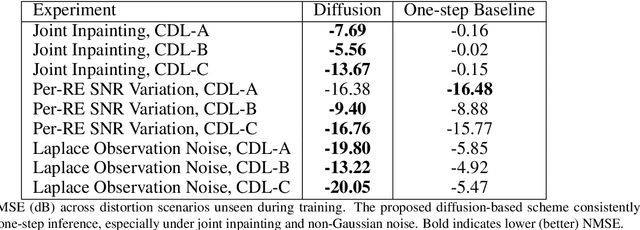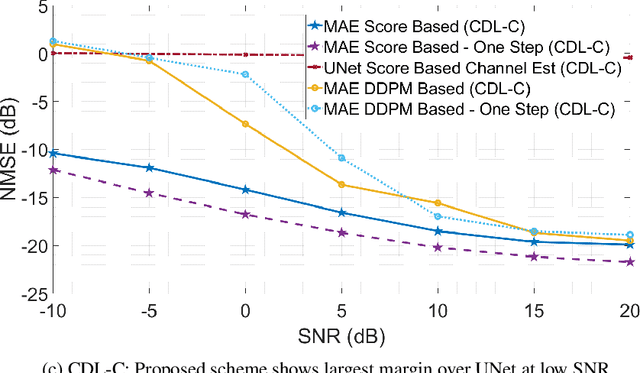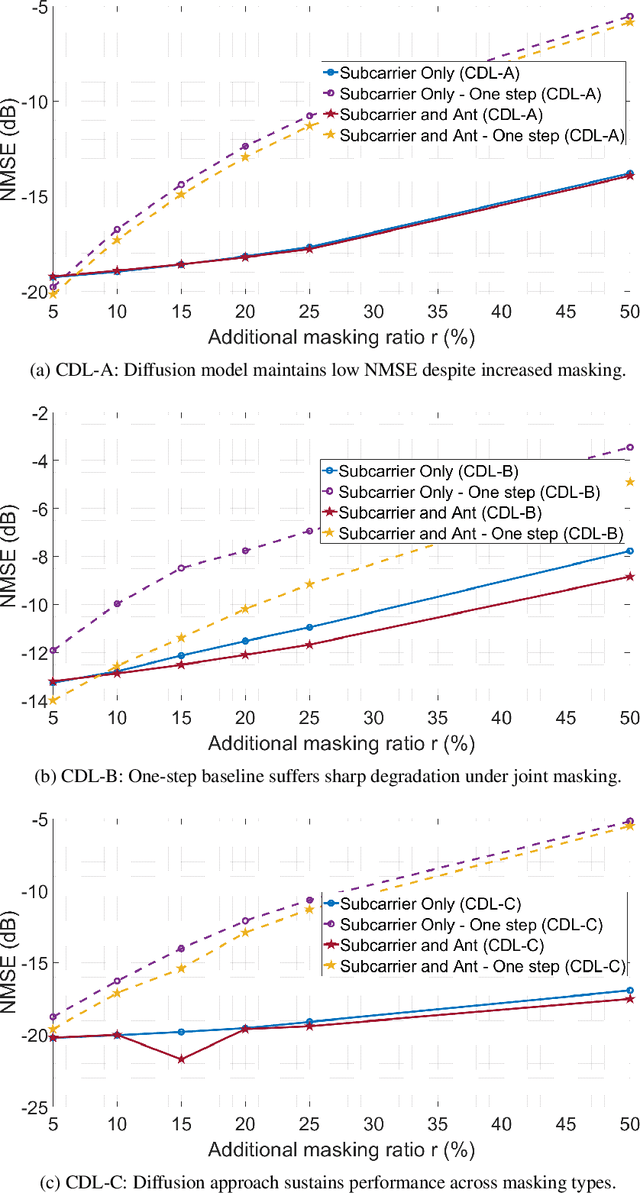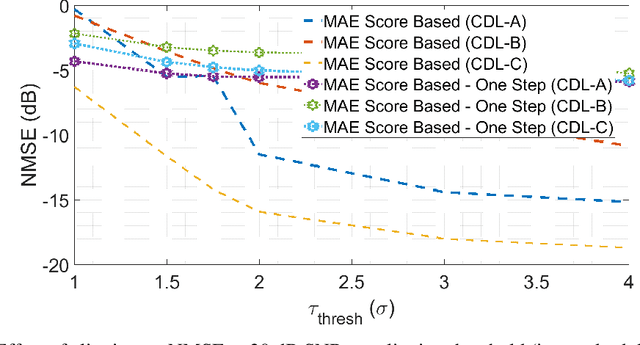Robust Super-Capacity SRS Channel Inpainting via Diffusion Models
Paper and Code
Oct 30, 2025



Accurate channel state information (CSI) is essential for reliable multiuser MIMO operation. In 5G NR, reciprocity-based beamforming via uplink Sounding Reference Signals (SRS) face resource and coverage constraints, motivating sparse non-uniform SRS allocation. Prior masked-autoencoder (MAE) approaches improve coverage but overfit to training masks and degrade under unseen distortions (e.g., additional masking, interference, clipping, non-Gaussian noise). We propose a diffusion-based channel inpainting framework that integrates system-model knowledge at inference via a likelihood-gradient term, enabling a single trained model to adapt across mismatched conditions. On standardized CDL channels, the score-based diffusion variant consistently outperforms a UNet score-model baseline and the one-step MAE under distribution shift, with improvements up to 14 dB NMSE in challenging settings (e.g., Laplace noise, user interference), while retaining competitive accuracy under matched conditions. These results demonstrate that diffusion-guided inpainting is a robust and generalizable approach for super-capacity SRS design in 5G NR systems.
 Add to Chrome
Add to Chrome Add to Firefox
Add to Firefox Add to Edge
Add to Edge